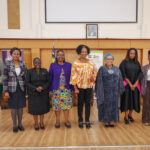We occupy a physical and real space, but our mind is constantly attentive to the virtual dimension. Without hunting or collecting, the man of the 21st Century solves his needs by pressing keys or touch screens; sitting in front of a PC or at any time and anywhere, with his mobile device.

As these tools were replacing objects – the alarm clock and the wrist, the desktop calendar, the street guide, the letters that arrived by postal mail – they were also centralizing activities that went from real to digital, facilitating life in different areas : at work, personal relationships, entertainment, and personal and professional development.
Technology and its multiple devices bring us a world of possibilities, including the option to interact with others from anywhere, feel close, know other cultures, learn from any space and at any time, and work remotely, among others.
However, beyond the facilities and amenities it provides, it is essential not to leave aside the importance of finding balance, especially among young people who are the majority of Homo Digitalis profile (HD) – opposed to the traditional Homo Sapiens. Why? Many of them, for example, even sleep with the phone under the pillow, as a full-time job, solving everything with a click.
In this context, it is important to recognize that the potential of labor and educational collaboration at the global level is very broad. The profile of Homo Digitalis has before it a range of opportunities ahead, which it knows how to take advantage of: it understands that technology not only serves human relations, but also that it can learn with and from it constantly. The social model gradually adapts to this new demand for life, and education is an aspect that is not excluded.
Faced with this new wave, some institutions like Ajira Kenya are at the forefront in the field of online education, providing constant spaces at all times and in all places, to facilitate immediate access to information, without neglecting the learning of quality and updated.
All generations have had their interests, and the current – integrated by the HD – cannot be neglected, since it has specific demands to be addressed and have a profile that sets them apart: they want quick answers and knowledge, without the need to leave to do what they were doing, and without the will to change space.
The challenge for the institutions is then to adjust their projects to satisfy this new lifestyle, immediate, digital and avid knowledge. “The challenge of the communications age can be defined as the creation of knowledge from information” (McCarthy, 1991)
Meanwhile, for the Homo Digitalis, the challenge is to find a balance that allows to take advantage of the benefits of being always connected and being able to solve everything online, without neglecting the link with the other and interpersonal relationships.














